Il Forum
Panoramica
Il Forum riunisce leader, decision-maker, imprenditori, accademici, artisti per discutere questioni pressanti della regione MEM. Gli young change-maker hanno un’opportunità unica di scambiare opinioni con esponenti di alto livello ed esperti, e di presentare idee e proposte elaborate durante il seminario. Il Forum è articolato in panel, interventi di relatori di alto livello. Il numero di panel varia a seconda delle questioni di attualità, dei progetti in corso e delle collaborazioni. Tuttavia, tre filoni sono sempre presenti in ogni edizione: la geopolitica, le sfide economiche, la cultura e l’arte.
Forum 2023
Il Forum del MEM Summer Summit, che ha avuto luogo il 26 agosto, è l’evento conclusivo dei 10 giorni del Summit ed era aperto al vasto pubblico.
Il Forum del MEM Summer Summit 2023 è stato aperto con gli interventi di figure istituzionali ed esponenti politici che hanno sottolineato l’importanza strategica e culturale della regione del Medio Oriente Mediterraneo, caratterizzata da una unità e prossimità geografiche ma da una grande eterogeneità e ricchezza culturale. L‘accento è stato posto sul ruolo cruciale di progetti ed iniziative di collaborazione fra i diversi attori della regione per favorire la comprensione reciproca.
Guarda il Forum 2023
Discorsi di apertura e Keynote speech
Discorsi di apertura:
Lorenzo Cantoni, Pro-rector for Education and Students’ experience, Università della Svizzera italiana, Switzerland
Morena Ferrari Gamba, President of the City Council of Lugano, Switzerland
Marina Carobbio Guscetti, Member of the Cantonal Council, Director of the Department of Education, Culture and Sport, Republic and Canton Ticino, Switzerland
HE Ignazio Cassis, Federal Councillor, Federal Department of Foreign Affairs, Switzerland
Keynote speech:
HE Mohamed Mehdi Bensaid, Minister of Youth, Culture and Communication, Kingdom of Morocco
Alexandra Xanthaki, UN Special Rapporteur in the field of cultural rights, Switzerland
HE Jacques Ducrest, Ambassador, Head of International Relations Division, State Secretariat for Education, Research and Innovation, Switzerland
Panel 1: La regione del Medio Oriente Mediterraneo oggi: configurazioni geopolitiche
Nell’ultimo anno, il panorama geopolitico della regione ha subito rapide e profonde trasformazioni con implicazioni sui futuri assetti regionali e globali.
Il conflitto tra Russia e Ucraina continua ad avere un impatto sui Paesi della regione, non solo sugli equilibri e le configurazioni geopolitiche, ma anche sulla sicurezza alimentare e sulla situazione socio-economica.
L’affermazione di un paradigma multipolare nelle relazioni internazionali ha provocato cambiamenti nelle alleanze e nell’influenza delle potenze tradizionali. I Paesi del Golfo hanno accresciuto la loro importanza sulla scena globale, rafforzando al contempo le relazioni regionali nel Mediterraneo allargato. Contestualmente, Paesi come la Tunisia, l’Iran e Israele hanno vissuto sviluppi politici interni e disordini importanti, con implicazioni di vasta portata per la regione e non solo.
Al panel hanno partecipato illustri esperti di geopolitica e relazioni internazionali che hanno proposto analisi sulle problematiche attuali e sulle prospettive della regione.
Mohamed Mahmoud Mohamedou, Deputy Director and Professor of International History and Politics, Graduate Institute of international and development studies, Switzerland
Karim Emile Bitar, Professor of International Relations and Director of the Institute of Political Science at the Saint Joseph University of Beirut, Lebanon
Cinzia Bianco, Research Fellow on the Arabian Peninsula and the Gulf, European Council on Foreign Relations, Italy
Matteo Legrenzi, Professor of International Relations, Università Ca’ Foscari Venezia, Italy
Adi Horesh, Young change-maker
Moderatore: Mohamed Mahmoud Mohamedou, Deputy Director and Professor of International History and Politics, Graduate Institute of international and development studies, Switzerland
Panel 2: Il ruolo della cultura, tra dialogo e diplomazia
Il panel ha evidenziato il ruolo della cultura, intesa nel suo senso più ampio, per promuovere il dialogo, la collaborazione e la pace al di là dei confini nazionali. Le dinamiche politiche e di potere, le relazioni e le influenze all’interno e tra i Paesi sono state analizzate attraverso la lente della cultura e delle narrazioni culturali.
Lo sviluppo e il rafforzamento di un’interazione multiforme tra persone e Paesi, che includa le loro diverse identità e le risposte a domande comuni, porta a promuovere e sostenere il dialogo nella regione. La cultura rappresenta una dimensione inevitabile delle relazioni internazionali e la diplomazia culturale è diventata uno degli strumenti più apprezzati nelle strategie diplomatiche.
I relatori, provenienti da esperienze e formazioni diverse, hanno delineato un quadro teorico corredato da esempi di successo in diversi campi come la scienza, la diplomazia, la musica e i media.
Maurizio Bona, Former Advisor to the Director General of CERN and Professor at University of Pavia, Italy
Renee Hattar, Director of the Royal Institute for Inter-Faith Studies, Jordan
Selim Koru, Analyst at the Economic Policy Research Foundation of Turkey, Turkey
Ines Mokdadi, Young change-maker
Moderatore: Diana Segantini, Advisor for Arts, culture, heritage and media, Switzerland
Prima del panel – Intervista con Fatima Zamba, Young change-maker
Panel 3: Il cambiamento climatico: sfide e opportunità
La regione mediterranea del Medio Oriente è altamente vulnerabile agli effetti del cambiamento climatico. Secondo studi recenti, la regione si sta riscaldando a un ritmo doppio rispetto alla media globale, con il rischio di diventare inabitabile per una parte significativa della sua popolazione entro il 2050.
La regione ha ospitato la 27a Conferenza delle Nazioni Unite sui cambiamenti climatici in Egitto nel 2022 (COP 27) e ospiterà la COP 28 negli Emirati Arabi Uniti alla fine del 2023. Gli studi hanno evidenziato la necessità di un’azione immediata, poiché il cambiamento climatico sta aggravando problemi persistenti e criticità della regione. Fra questi, la scarsità d’acqua, l’insicurezza alimentare, l’intensificazione dei disastri naturali, l’incremento dei flussi migratori e l’intensificazione dei conflitti.
Affrontare efficacemente queste complesse sfide richiede un approccio globale e multidisciplinare, collaborazioni a livello regionale e interregionale. Inserendo tra le priorità la sostenibilità ambientale e promuovendo lo sviluppo di comunità resilienti al clima, la regione può iniziare a contrastare gli effetti negativi del cambiamento climatico.
L’obiettivo principale di questo panel è quello di far luce sulle sfide stratificate che la regione deve affrontare, presentando allo stesso tempo soluzioni innovative e opportunità per fronteggiare questa crisi.
Mohammed Mahmoud, Senior Fellow and Director of the Climate and Water Program, Middle East Institute, United States
Adnan Tabatabai, CEO, CARPO – Center for Applied Research in Partnership with the Orient, Germany
Shivan Fazil, Research fellow at the Stockholm International Peace Research Institute, Iraq
Maryem Fitouri, Young change-maker
Moderatore: Alessandro Bertellotti, Radiotelevisione svizzera, Switzerland
Prima del panel – Intervista con Antoine Kallab, Young change-maker
Panel 4: Scenari futuri per la regione del Medio Oriente Mediterraneo e discorso di chiusura di Dott.ssa Federica Frediani
In chiusura del Forum MEM 2023, i giovani change-maker hanno presentato alcuni scenari futuri per la regione del Medio Oriente Mediterraneo, elaborati durante un workshop MEM in Marocco a giugno del 2023 e ulteriormente sviluppati durante il Seminario MEM 2023. Questi scenari, sviluppati da giovani change-makers, rappresentano un set di risposte alle sfide attuali e propongono visioni, aspirazioni e percorsi di sviluppo, nella speranza di ispirare nuove e ulteriori narrazioni.
Luogo
Aula Magna, Campus Ovest, Università della Svizzera italiana, LuganoData
Saturday 26 August, 2023Relatori 2023
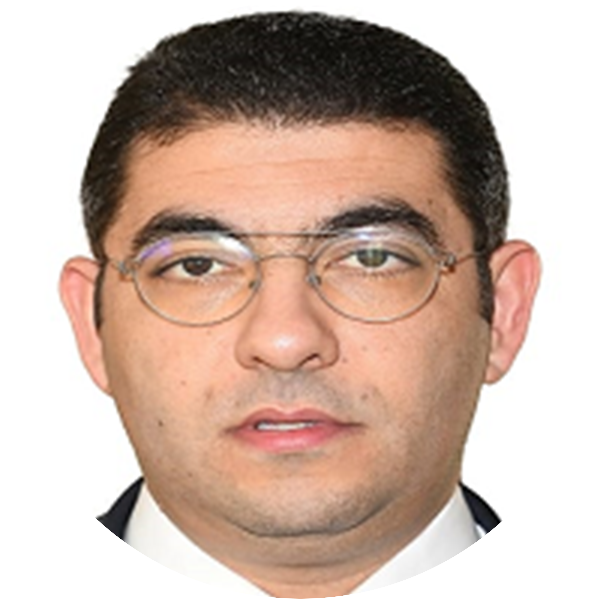
HE MOHAMMED MEHDI BENSAID
Minister of Youth, Culture and Communication, Kingdom of Morocco
Mohammed Mehdi Bensaid was born on 26 October 1984 in Rabat.
He has a degree in Political Science and International Relations from the Institut d’Etudes Politiques in Toulouse, and in Law from the Faculty of Law in Toulouse. He also holds a Master’s degree in African Affairs from Sciences Po Paris, and in International Relations from the Institut de Relations Internationales et Stratégiques in Paris. Mehdi Bensaid became involved in politics following the democratic changes in the Kingdom of Morocco.
As a founding President of the Cercle des Jeunes Démocrates Marocains, he entered Morocco in the Guinness Book of Records with the world’s largest flag in Dakhla.
He was elected to the House of Representatives of the Kingdom of Morocco following the 2011 legislative elections. After being elected Chairman of the Committee on Foreign Affairs, National Defence, Islamic Affairs and Moroccans Residing Abroad between 2014 and 2016, Mr Mehdi Bensaid became the youngest MP to hold such a position.
Mohammed Mehdi Bensaid has demonstrated his commitment to integrating young people into public policy and political action at both local and national level. A member of the Political Bureau of the Authenticity and Modernity Party, he was elected deputy in the legislative elections of 8 September 2021 for the “Rabat-Ocean” constituency, before being appointed Minister for Youth, Culture and Communication.
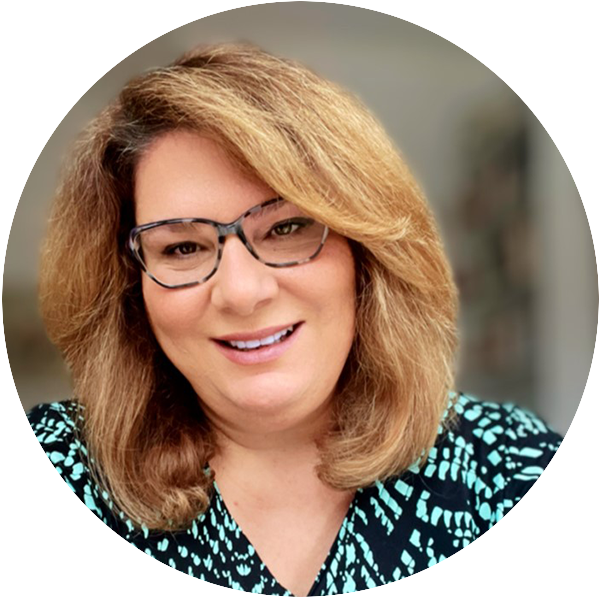
ALEXANDRA XANTHAKI
UN Special Rapporteur in the field of cultural rights, Switzerland
Alexandra Xanthaki is Professor of Laws at Brunel University London, United Kingdom. A leading expert on cultural rights, Alexandra has over 50 publications varying from cultural rights of minorities and indigenous peoples to cultural diversity, cultural heritage, balancing cultural rights with other rights and interests, and multicultural aspects of international human rights law.
Alexandra is Greek and completed her law degree in Athens Law Faculty and qualified as a lawyer. She then moved to the United Kingdom and completed a Masters degree (LLM) in ‘Human Rights and Emergency Law’ at Queen’s University, Belfast. She pursued a doctorate at Keele University, UK, on the ‘Rights of Indigenous Peoples in the United Nations’ under the supervision of Patrick Thornberry. Her work on cultural rights of non-state actors is well-known and has been cited repeatedly in international documents. She has worked on issues relating to human rights with NGOs and civil society. Before taking up the mandate, Alexandra has worked closely with several mandates at the United Nations and has advised several States on human rights issues. She has also taught civil servants and lawyers in several parts of the world, including the Ukraine, Vietnam, South Africa and Malaysia.
Alexandra is a member of the Summer Human Rights Faculty in Oxford. In Brunel University London, she leads the Brunel side in an EU funded project of 13 partners on employing technology to push forward the integration of migrants. She has also worked with colleagues and NGOs to develop a prototype of an online game to advance the rights of children and their integration. Ms. Xanthaki is well known as the founder of the awarded Athens Refugee Project, where students have volunteered since early 2016 with refugee civil society organisations.
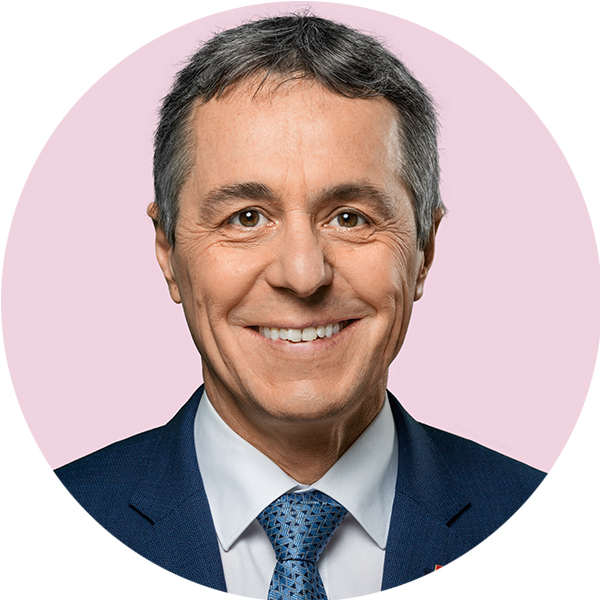
HE IGNAZIO CASSIS
Federal Councillor, Federal Department of Foreign Affairs, Switzerland
Ignazio Cassis worked as a medical doctor before starting his political career as a member of the communal parliament for Collina d’Oro, in the district of Lugano. Whilst serving as the cantonal physician, he was elected 2007 to the National Council as a member of FDP – The Liberals. 2017 Ignazio Cassis was elected to the Federal Council. In line with the seniority principle of the Federal Council he took on the presidency of the Swiss Confederation in 2022.
Ignazio Cassis (FDP), elected by the United Federal Assembly on 20 September 2017, took up his post as head of the Federal Department of Foreign Affairs (FDFA) on 1 November 2017.
For two years prior to his election to the Federal Council, Mr Cassis was president of the parliamentary group of the FDP.The Liberals, of which he was a member since his election to the National Council in 2007. From 2015, he chaired the National Council’s Social Security and Health Committee. He was also vice-chair or chair of various parliamentary groups. His political career began in 2004 with his election to the legislative authority of the Ticino municipality of Collina d’Oro.
After graduating in medicine from the University of Zurich in 1987, Ignazio Cassis obtained a doctorate from the University of Lausanne in 1996 and a master’s degree in public health from the University of Geneva the same year.
From 1988 to 1996 he worked as a doctor, specialising 1998 in internal medicine and in prevention and public health. From 1997 to 2008 he was cantonal physician for the Canton of Ticino. From 2008 to 2012 has held the office of Vice-President of the Swiss Medical Association and since 2012 has held the office of various organisations in the health sector (Curafutura, CURAVIVA, EQUAM, RADIX, etc.).
His university teaching activities (in charge of courses) have taken him to various universities, such as Università della Svizzera italiana, Université de Lausanne, Universität Bern and Universität Zürich.
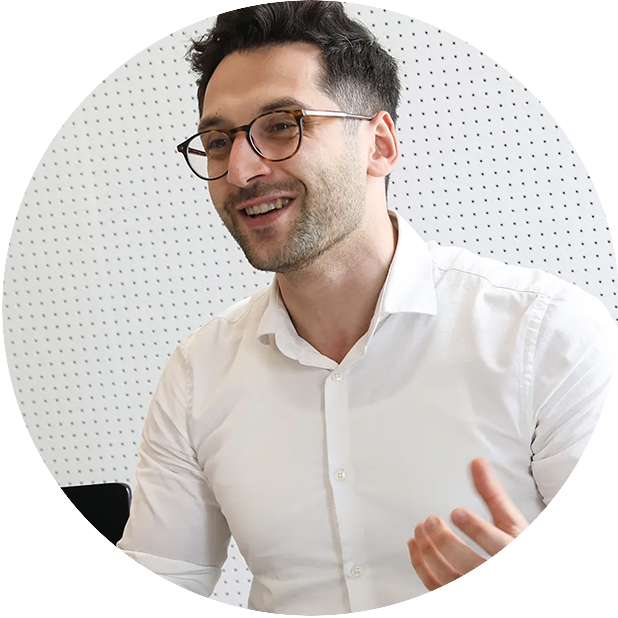
ZAKARIA AL SHMALY
Doctoral Fellow, United Nations University Maastricht
Zakaria Al Shmaly is a Syrian academic who researches the intersection between governance and technology, with a focus on European asylum policy. He worked in Europe and the Middle East with humanitarian and international organisations such as the International NGO Safety Organisation (INSO), Norwegian Refugee Council (NRC), and the European Parliament. He holds a B.A. in Liberal Arts and Sciences from the University College Freiburg, an M.A. from the European University Institute, and is currently a Dahrendorf Fellow at Oxford University – St. Antony’s College and a Doctoral Fellow at the United Nations University – Maastricht Economic and Social Research Institute on Innovation and Technology (UNU-MERIT). Zak is also a musician and a political theatre
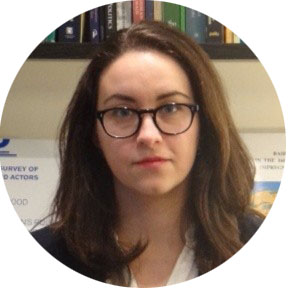
CINZIA BIANCO
Research Fellow on the Arabian Peninsula and the Gulf, European Council on Foreign Relations, Italy
Cinzia Bianco is a research fellow at the European Council on Foreign Relations, where she is working on political, security and economic developments in the Arabian Peninsula and Gulf region and relations with Europe. She is based between Berlin (Germany) and Milan (Italy). Additionally, she is a senior analyst at Gulf State Analytics and a non-resident scholar at the Middle East Institute in Washington DC. Previously, Bianco was a research fellow for the European Commission’s project on EU-GCC relations ‘Sharaka’ between 2013 and 2014.
She holds an MA degree in Middle East and Mediterranean Studies from King’s College London and a PhD in Middle East Politics from the University of Exeter in the United Kingdom. She is the author, together with Prof. Matteo Legrenzi, of the first-ever book Italian book on the contemporary geopolitics of the Gulf monarchies, “Le monarchie arabe del Golfo” edited by Il Mulino (2023).
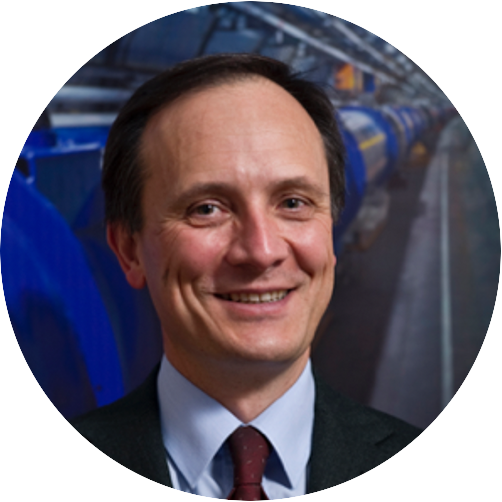
MAURIZIO BONA
Former Advisor to the Director General of CERN and Professor at University of Pavia, Italy
Maurizio Bona holds an engineering degree and a doctor degree in material science from Politecnico di Milano. He spent his whole career at CERN, the European Organization for Nuclear Research, Geneva.
He joined CERN in 1983 and participated in the design and development phases of the LHC* superconducting magnets. He was responsible of the development of short-length prototypes and of the first full-length prototype dipole magnets. As Invited Professor, he taught superconductivity and superconducting magnets at University of Genoa.
Once the R&D phase of the LHC dipoles concluded, he led the Technical Group and the Integrated Safety and Environment Group of the CERN Safety Department. From June 2006 until the end of December 2008 he led the Safety Department.
From 2009 to the end of 2015, he was the Advisor to the Director-General, in charge of relations with international organizations. He was instrumental to develop the CERN network of relations with other international organizations and to obtain in December 2012 the status of Observer for CERN in the United Nations General Assembly. He officially represented CERN at the UN General Assemblies of the following years.
In 2016 he served as the Head of Relations with international organization. From 2017 until retirement (April 2022) he was Senior Advisor for relations with Parliaments and Science for policy, and Senior Advisor on knowledge transfer.
At present he is Vice-Chair of the Steering Committee of the International Year of Basic Sciences for Sustainable Development, which was proclaimed by the United Nations in December 2021.
Maurizio Bona is an expert in science diplomacy and promoter of initiatives aimed at valorizing the role of science, technology, and STEM education for the good of society, for the intercultural dialogue, and for peace. He is regularly invited to share his experience at public conferences and thematic events.
* CERN’s Large Hadron Collider (LHC), is the world largest (27 km circumference) and highest-energy accelerator. Details: www.cern.ch

MARINA CAROBBIO GUSCETTI
Member of the Cantonal Council, Director of the Department of Education, Culture and Sport, Republic and Canton Ticino, Switzerland
After studying medicine at the University of Basel, where she graduated in 1991, she worked as a family doctor.
From 1991 to 2007, she was a deputy to the Grand Council of Ticino. From 2007 to 2019 she was a member of the National Council, where she was a member of the Finance Commission, the Social Security and Health Commission and the Finance Delegation. In 2018 and 2019, she was elected as President of the National Council and Federal Assembly. Also in 2019, she became the first woman from Ticino and the first Ticino member of the Socialist Party to win a seat in the Council of States. In the Council of States she was a member of the Finance Commission, the Social Security and Health Commission, the Science, Education and Culture Commission, as well as the Parliamentary Delegation to the Council of Europe.
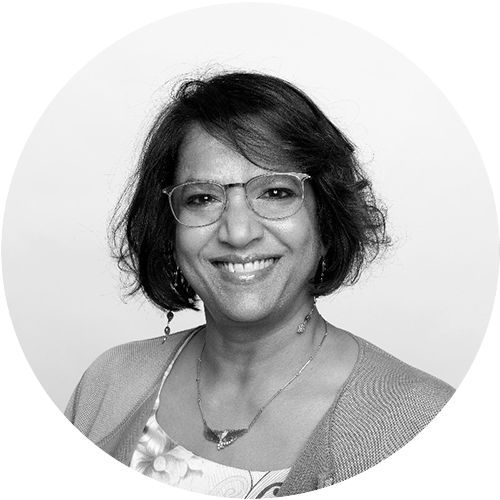
MORENA FERRARI GAMBA
President of the City Council of Lugano, Switzerland
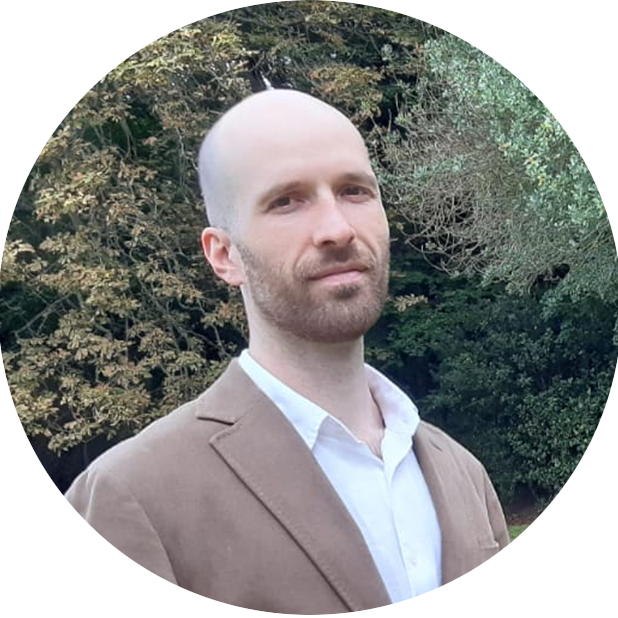
SELIM KORU
Analyst at the Economic Policy Research Foundation of Turkey (TEPAV), Turkey
Selim Koru is an analyst at the Ankara-based Economic Policy Research Foundation of Turkey (TEPAV) and a fellow at the Philadelphia-based Foreign Policy Research Institute (FPRI). He writes about Turkish politics in outlets such as The New York Times and War on the Rocks. He also writes Kültürkampf, a Substack newsletter on Turkey’s political culture. He is currently writing a book on Turkish politics as well as a PhD dissertation on Nietzsche’s politics.
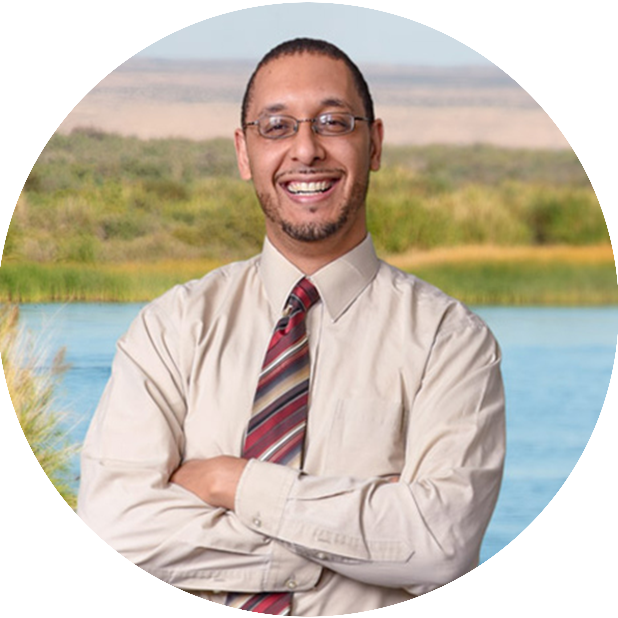
MOHAMMED MAHMOUD
Senior Fellow and Director of the Climate and Water Program, Middle East Institute, United States of America
Mohammed Mahmoud is the Director of the Climate and Water Program and a senior fellow at the Middle East Institute. His areas of expertise include climate change adaptation, water policy analysis, and scenario planning.
Mohammed has held leadership positions in several organizations. Most recently as Chair of the Water Utility Climate Alliance; a coalition of 12 of the nation’s largest water utilities that collectively provide water to over 50 million people in the United States, with the purpose of providing leadership and collaboration on climate change issues that affect water agencies. Prior to that Mohammed was President of the North American Weather Modification Council; an organization dedicated to advancing research and development activities that increase the scientific knowledge and proper use of weather modification applications.
Mohammed’s professional accomplishments include negotiating and formalizing a 10-year multi-state cloud seeding funding agreement between seven Colorado River Basin states, developing and implementing the first ever climate adaptation plan for a multi-county water district in Arizona, and helping secure a 1.1 million dollar grant from NASA for Arizona State University to study the impacts of climate change on the hydrology of the Western United States. Furthermore, he has provided numerous subject matter interviews in press, radio, and video media on climate-associated topics such as regional climate change impacts, water resources management, extreme heat, droughts, and the food-water-energy nexus.
Mohammed has conducted water management research and work for the Middle East and North Africa region; most extensively on the Nile River Basin. His research on the Nile River Basin focused on the development of water resources in the Basin, analysis of Nile water- sharing agreements, and solutions for current and future challenges in the Nile River Basin.
Mohammed’s other water management work in the region explored formalizing the administration of Saudi Arabia’s groundwater resources by using other established groundwater management frameworks as application templates; such as Arizona’s 1980 Groundwater Management Code.
Mohammed’s educational background includes a B.S. and M.S. in Civil Engineering from Michigan Technological University, and a PhD in Hydrology and Water Resources from the University of Arizona. In addition, he is a Faculty Associate with Arizona State University.
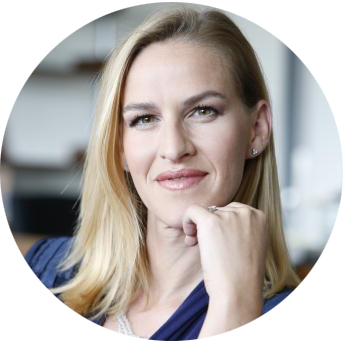
DIANA SEGANTINI
Advisor for Arts, culture, heritage and media, Switzerland
Diana Segantini is a Swiss/Norwegian citizen who specialised in Arab-Islamic Studies at L’Orientale University in Naples and holds a Masters in International Relations from IUHEI Geneva. Segantini started her professional career in the art and documentary film scene, as well as gaining extensive experience working in different countries serving the UN, various NGOs and more extensively in the Middle East as a delegate for the International Red Cross ICRC for 4 years. Fluent in Arabic and 9 other languages, she has become an expert on the Arab region and with regard to intercultural issues.
In 2008, she founded Segantini Unlimited, an agency specialised in cultural mediation and international cultural productions such as art exhibitions, music events, debates and documentary films, mandated by the Global Ethic Foundation.
Segantini has also led women’s empowerment programs in Saudi Arabia and the rest of the GCC. For 6 years, she was head of Arts & Culture for Swiss TV and radio RSI and a Member of the RSI Board, producing music concerts and over 100 feature and documentary films, acclaimed at various international Festivals.
Since 2019, she has contributed to Saudi Arabia’s Vision 2030 through several projects; in 2019 she was appointed Chief Heritage & Culture officer at Diriyah Gate Development Authority in Saudi Arabia, responsible for this UNESCO Heritage Site, building up several cultural institutions such as museums, academies and an Art District. She subsequently served as senior director for Arts & Culture at AMAALA. Currently, she is Partner for Culture, Heritage & Communication at AEON Strategy, a Saudi firm specialised in true sustainability. Moreover, she is an independent advisor for arts, culture, media & philanthropy in different projects in GCC and Switzerland.
HE WAFA BANI MUSTAFA
Minister of Social Development, Hashemite Kingdom of Jordan
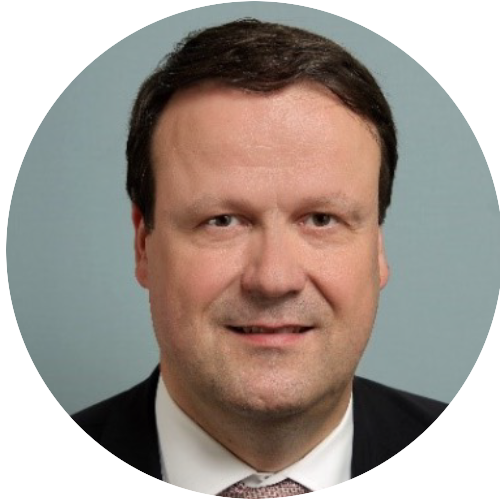
HE JACQUES DUCREST
Ambassador, Head of International Relations Division, State Secretariat for Education, Research and Innovation, Switzerland
Jacques Ducrest studied law at the Universities of Neuchâtel, Switzerland, and Mannheim, Germany, before going on to gain a Master of Laws (LL.M.) degree from McGill University in Montreal, Canada. He has also been admitted to the bar of the canton of Neuchâtel. Having joined the federal government’s diplomatic service in 1998, he completed postings to Manila, Prague and Vienna before joining the Directorate of International Law, and then the Prosperity and Sustainability Division at the Federal Department of Foreign Affairs.
Deputy Head of the Prosperity and Sustainability Division from 1 September 2017, Jacques Ducrest focused on a cross-disciplinary approach to current challenges in a sustainability perspective. In this capacity, on 22 March 2019, he was appointed Delegate of the Swiss Federal Council for the 2030 Agenda for Sustainable Development. He chaired the 2030 Agenda Steering Committee, which is the strategic guiding and coordinating body for sustainable development policy at federal level.
From 1 April 2022, Ambassador Jacques Ducrest is Head of the International Relations Division at the State Secretariat for Education, Research and Innovation and member of the Management board. He is responsible for the negotiation and implementation of bilateral agreements in the fields of education, research and innovation as well as for Swissnex, the global network connecting Switzerland and the world in education, research and innovation.
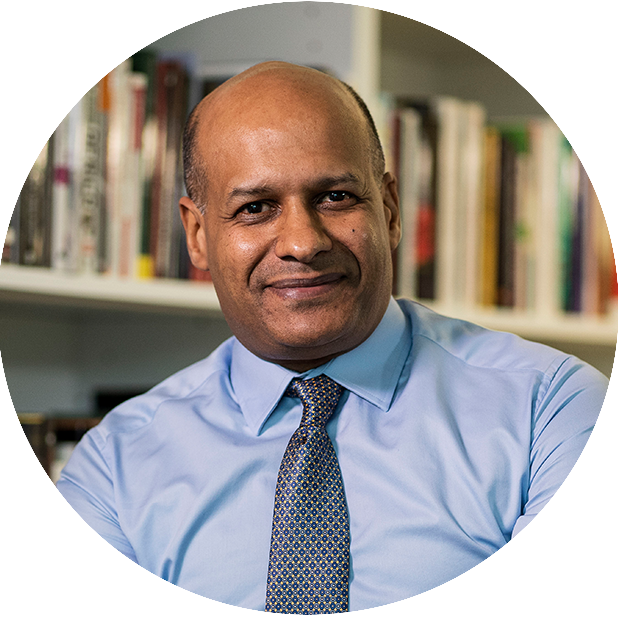
MOHAMED MAHMOUD MOHAMEDOU
Deputy Director of the Graduate Institute of international and development studies, Professor of International History and Politics, Switzerland
Mohammad-Mahmoud Ould Mohamedou is Professor of International History and Politics at the Geneva Graduate Institute (Institut de Hautes Études Internationales et du Développement) in Geneva, where he is Deputy Director and headed the Department of International History and Politics from 2017 to 2022. Professor Mohamedou was previously Associate Director of the Humanitarian Policy and Conflict Research Programme at Harvard University in Cambridge, Massachusetts, and Visiting Professor at the doctoral school at Sciences Po Paris and the University of St. Wales, as well as Deputy Director and Academic Dean of the Geneva Center for Security Policy (GCSP).
He is the author of a trilogy on the post-September 11 era – Contre-Croisade: Le 11 Septembre et le Retournement du Monde (L’Harmattan, 2004), Understanding Al Qaeda: Changing War and Global Politics (Pluto Press, 2011) and A Theory of ISIS: Political Violence and the Transformation of the Global Order (University of Chicago Press, 2018) – as well as Iraq and the Second Gulf War: State-Building and Regime Security (Austin & Winfeld, 2002).
He is the editor of State-Building in the Middle East and North Africa – One Hundred Years of Religion, Nationalism and Politics (Bloomsbury, 2021) and co-editor, with Timothy Sisk, of Democratization in the 21st Century (Routledge, 2016). He was Minister of Foreign Affairs of Mauritania in 2008 and was the recipient of the Collège de France Recognition in November 2018 and awarded Global South Distinguished Scholar 2020/2021 from the International Studies Association (ISA). In December 2018, Al Jazeera English devoted a documentary entitled Rethinking Radicalisation to his research work.
ALESSANDRO BERTELLOTTI
Radiotelevisione svizzera, Switzerland
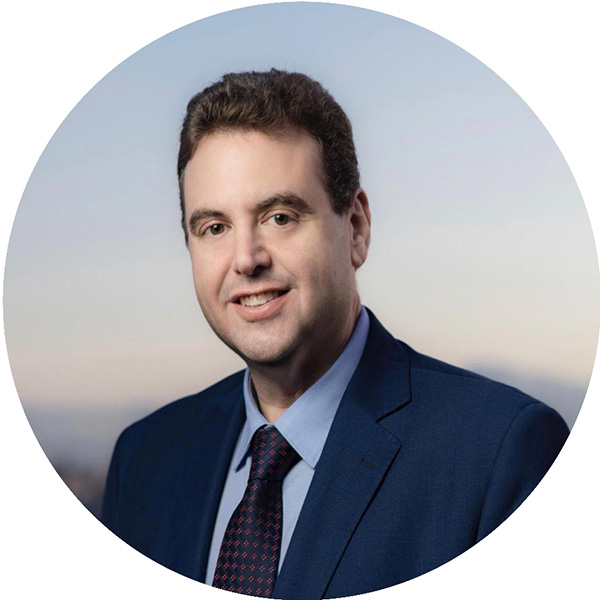
KARIM EMILE BITAR
Professor of International Relations and Director of the Institute of Political Science at the Saint Joseph University of Beirut, Lebanon
Karim Emile Bitar is Professor of International Relations and Director of the Institute of Political Science at the Saint Joseph University of Beirut (USJ), a Lecturer in Geopolitics, Diplomacy and Middle East Studies at Ecole Normale Supérieure (ENS-Lyon), a Senior Fellow at theInstitute for International and Strategic Relations in Paris (IRIS). He is an Associate Fellow at the Geneva Center for Security Policy (GCSP), and a Non-Resident Scholar at Washington D.C.’s Middle East Institute (MEI).
He is the Director of the Arab Master in Democracy and Human Rights (Global Campus of Human Rights, Venice, Italy), a program coordinated by USJ in partnership with seven Arab and European Universities. He is the Editor of French monthly public affairs magazine ‘L’ENA hors les murs’, of which he has coordinated more than 150 issues.
He is co-founder and member of the board of directors of ‘Kulluna Irada’, a leading lobbying and civic organization for political reform in Lebanon. He is Vice-President of the ‘Cercle des Économistes Arabes’, Secretary General of the ‘Emile Bitar Foundation’, the initiator of the ‘Beirut Human Rights Week’ and the co-organizer of the International Feminisms Festival.
He graduated from France’s National School of Administration (ENA, promotion Cyrano de Bergerac 1997-1999) and from the Paris Institute of Political Studies (Sciences Po). He studied Law at the University of Paris Sorbonne, Economics and International Relations at McGill University. He spent his senior year at Harvard where he studied Government and specialized in Middle East Studies. The dissertation he wrote at the University of Paris 8 focused on “The Relations between Orient and Occident in pubic and intellectual debates.”
He co-edited and co-wrote the collective books Regards sur la France (with Robert Fadel, Seuil, 2007, 640 pages), and Le Cèdre et le Chêne, De Gaulle et le Liban (with Clotilde de Fouchécour, Geuthner, 2015, 548 pages). He writes frequent Op-Eds in leading publications including The New York Times, Le Monde, Le Monde diplomatique, Libération, An-Nahar, L’Orient-Le Jour, Informed Comment, Atlantico, La Vanguardia…
He has recently contributed a chapter on ‘International Violence’ to the SAGE Handbook of Political Science. He is the author of more than twenty book chapters and academic articles. He has supervised more than 65 master theses.
He started his career as a consultant in Management for Cap Gemini Ernst & Young Consulting, before working for five years at France’s television channel CANAL+ (Vivendi Universal) as a manager in charge of strategic planning, business development and external relations. He later founder KB Consulting Group, a consulting firm in management, communication and public affairs
He gave conferences and keynote addresses in more than 25 countries. In the past 10 years, he has been quoted more than 1500 times in the international media (AFP, Reuters, Associated Press, The Christian Science Monitor, The New York Times, The Washington Post, Russia Today, Xinhua, Le Monde, Le Figaro, Libération, El Pais, The Guardian, Time…).
He frequently testifies before the Foreign Affairs Committees of the French and European Parliaments.
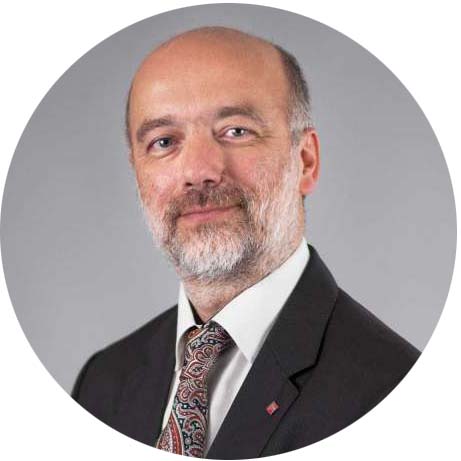
LORENZO CANTONI
Pro-rector for Education and Students’ experience, Università della Svizzera italiana
Lorenzo Cantoni graduated in Philosophy and holds a PhD in Education and Linguistics. He is full professor at USI – Università della Svizzera italiana (Lugano, Switzerland), Faculty of Communication, Culture and Society, where he is director of the Institute of Digital Technologies for Communication.
His research interests are where communication, education and new media overlap, ranging from computer mediated communication to usability, from eLearning to eTourism and digital Fashion, from ICT4D to eGovernment.
He is chair-holder of the UNESCO chair in ICT to develop and promote sustainable tourism in World Heritage Sites, established at USI in 2013, and board member of WHES – World Heritage Experience Switzerland.
He is USI’s Pro-rector for Education and Students’ experience.
He is director of the Master in Digital Fashion Communication, done in collaboration with the Université Paris 1 Panthéon-Sorbonne, and director of the Master in International Tourism.
L. Cantoni has been Dean of the Faculty (2010-2014), Deputy Rector (May 2022-June 2023) and President of IFITT – International Federation for IT in Travel and Tourism (2014-January 2018).
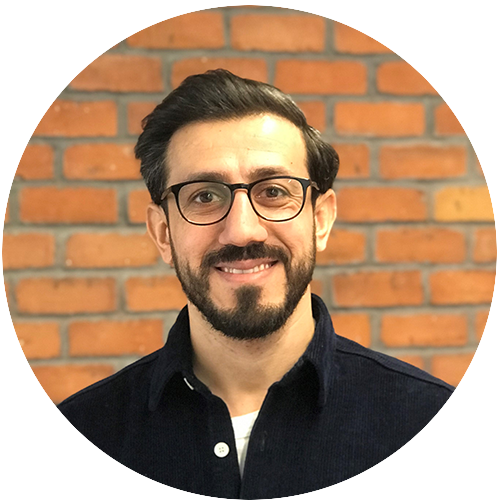
SHIVAN FAZIL
Research fellow at the Stockholm International Peace Research Institute, Iraq
Shivan Fazil is a Researcher with the Middle East and North Africa Programme at Stockholm International Peace Research Institute. His work mainly focuses on drivers of conflict, peacebuilding and governance in Iraq. He is regularly quoted in the international media, commenting on social, political and security dynamics in post-conflict Iraq. Fazil holds an MSc in Middle Eastern Politics from the School of Oriental and African Studies, University of London.
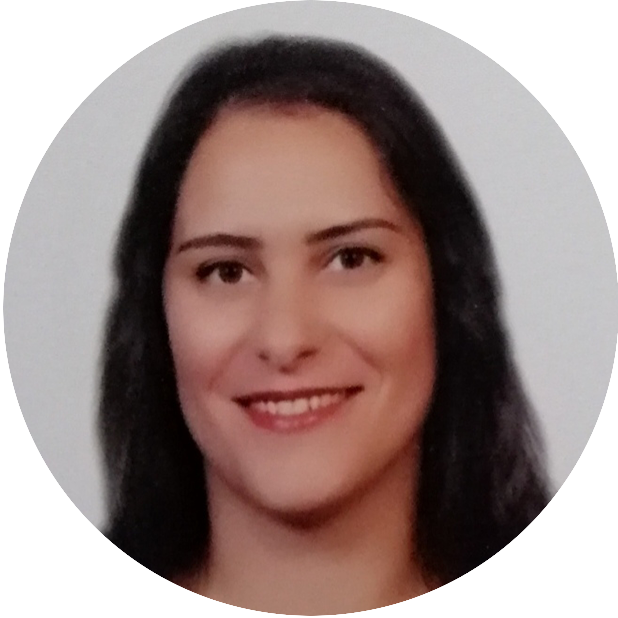
RENEE HATTAR
Director of the Royal Institute for Inter-Faith Studies, Jordan
Dr. Renee Hattar holds a PhD in Peace Studies from the University of Granada-Spain; she is specialised in Music and Peace with focus on Arab Christian Studies, Interfaith and Peacebuilding. Between 2006 and 2016 she has worked as Coordinator of the Middle East Department at the International Centre for the Study of Christian Orient in Granada- Spain and professor of Arabic Language and Culture at the Institute of Theology “Lumen Gentium”, affiliated to the Faculty of Theology at the San Damaso Ecclesiastical University/Spain, 2008 to 2016. She served as consultant of interfaith relations (Christianity-Islam) for the Spanish Episcopal Conference, 2012 to 2016. In 2016, Dr. Hattar joined the Royal Institute for Inter-Faith Studies as Head of International Studies, Programs and Projects and is August 2021 she was appointed RIIFS Director. She has participated in many conferences, workshops and trainings on different topics, such as Arab Christian studies, peacebuilding, music and peace, PVE, dialogue and inter-faith. She is the author of different articles and training manuals.
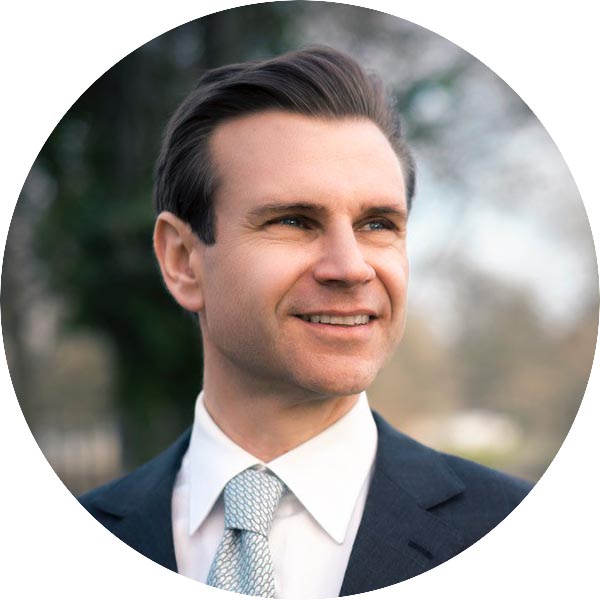
MATTEO LEGRENZI
Professor, Ca’ Foscari University of Venice, Italy
Matteo Legrenzi is a professor of International Relations at Ca’ Foscari University of Venice. He holds a DPhil in International Relations and an MPhil in Modern Middle Eastern Studies from St Antony’s College, Oxford. He served as president of the Italian Association for Middle Eastern Studies (SeSaMO) and is a member of the International Advisory Council of the World Congress for Middle East Studies (WOCMES) and of the European Association for Middle Eastern Studies (EURAMES) Council.
He helped to establish and served as inaugural coordinator of the undergraduate program in Philosophy, International Studies and Economics (PISE) and its double degree with the University of Gröningen. He was founding director of the master in Strategic Studies and International Security and is coordinator of the Research Institute for International Studies.
He is a member of the Institute of International Affairs (IAI – Istituto Affari Internazionali) and in Oxford he is Research Associate at the Department of Politics and International Relations. He sits on the editorial board of the Elements in Middle East Politics series of Cambridge University Press.
He was rector’s delegate for the Middle East and studied Arabic at the American University in Cairo. Before returning to Venice he taught in Oxford, Ottawa and Seoul and in 2009 he won the Capital Educators’ Award in Canada.
Legrenzi is an honorary research fellow at the University of Exeter and currently supervises numerous Marie Curie Global Individual Fellowships, one Marie Curie COFUND and four Marie Curie Europe Individual Fellowships. He deals with international relations and comparative government of the Middle East, in particular the political economy, regionalism and security of the Arab monarchies of the Gulf.
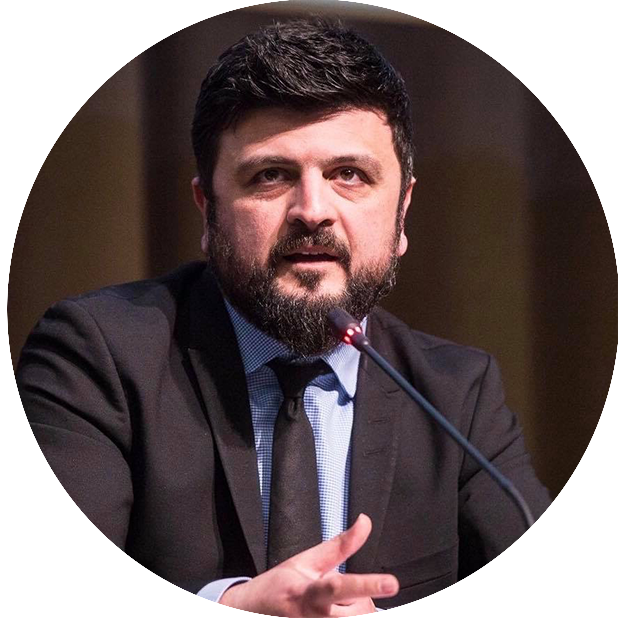
ADNAN TABATABAI
CEO, CARPO – Center for Applied Research in Partnership with the Orient, Germany
Adnan Tabatabai is co-founder and CEO of the Germany-based Middle East think tank CARPO – Center for Applied Research in Partnership with the Orient. He obtained his MSc. Middle East Politics at the School of Oriental and African Studies / University of London. As an Iran analyst Tabatabai is consulted by European policymakers and businesses on Iran related affairs. Through his work at CARPO, Tabatabai has designed and facilitated track 2 and civil-society dialogue formats between Iran and Saudi Arabia since 2015. He is furthermore involved in a variety of projects at CARPO on regional security in the Persian Gulf region. Tabatabai is author of the book “Morgen in Iran” (Oct. 2016, Edition Körber-Stiftung). He is regularly featured in international media with commentary and analysis on developments in Iran and the Middle East.
Relatori
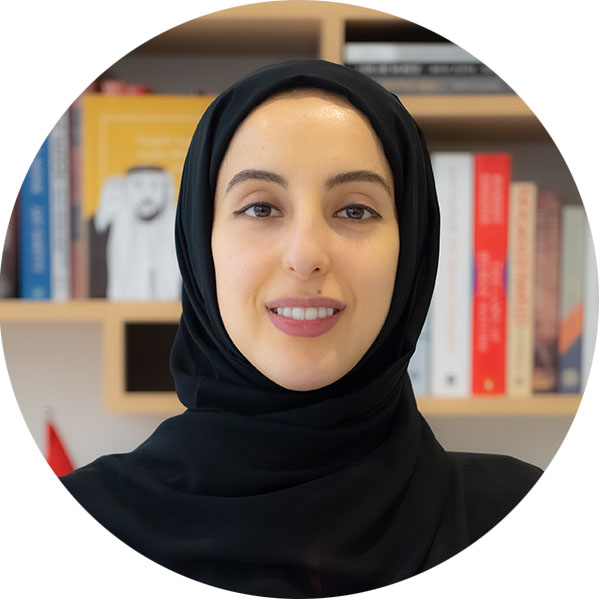
HE SHAMMA BINT SUHAIL FARIS AL MAZRUI
Minister of State for Youth Affairs, United Arab Emirates
H.E. Shamma Al Mazrui was appointed as the UAE’s Minister of State for Youth Affairs in February 2016 at the age of 22. She is also the Chair of Emirates Youth Council and the Vice-Chair of the Arab Youth Center. She serves as the Chairperson for Special Olympics UAE; and is the Secretary General of the Education and Human Resources Council in the UAE and is a board member of Emirates Foundation and a Global Leadership Council member of UNICEF’s Generation Unlimited.
Previously, H.E. Shamma worked in Private Equity at ADIC. She also worked as a public policy analyst at the UAE Mission to the UN, as a Policy Analyst with the Prime Minister’s Office, as a Research Analyst at the UAE Embassy in DC, and as an Education Policy Researcher at Tamkeen.
H.E. Shamma holds a M.P.P with Distinction from the University of Oxford (2015), a B.A. in Economics with a concentration in Finance from NYUAD (2014) and was the UAE’s first Rhodes Scholar.
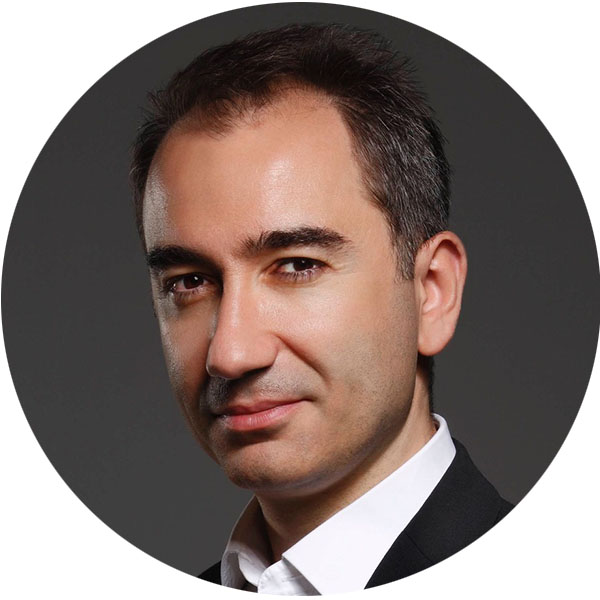
MUSTAFA AKYOL
Journalist and Author, Turkey
Mustafa Akyol is a senior fellow at the Cato Institute in Washington D.C., where he focuses on the intersection of public policy, Islam, and modernity. For nearly a decade, he was a contributing opinion writer for The New York Times, covering politics and religion in the Muslim world. His articles have appeared in many other prominent publications as well, including Wall Street Journal, Washington Post, The Atlantic or Foreign Policy. He is the author of Reopening Muslim Minds: A Return to Reason, Freedom, and Tolerance (2021), “Why, As A Muslim, I Defend Liberty” (2021), The Islamic Jesus: How the King of the Jews Became a Prophet of the Muslims (2017), and Islam without Extremes: A Muslim Case for Liberty (2011).
“The Thinking Muslim,” a popular podcast, defined Akyol as “probably the most notable Muslim modernist and reformer.” In July 2021, the Prospect magazine of the UK also listed him among “The world’s top 50 thinkers.”

CINZIA BIANCO
Research Fellow on the Arabian Peninsula and the Gulf, European Council on Foreign Relations, Italy
Cinzia Bianco is a research fellow at the European Council on Foreign Relations, where she is working on political, security and economic developments in the Arabian Peninsula and Gulf region and relations with Europe. She is based between Berlin (Germany) and Milan (Italy). Additionally, she is a senior analyst at Gulf State Analytics and a non-resident scholar at the Middle East Institute in Washington DC. Previously, Bianco was a research fellow for the European Commission’s project on EU-GCC relations ‘Sharaka’ between 2013 and 2014.
She holds an MA degree in Middle East and Mediterranean Studies from King’s College London and a PhD in Middle East Politics from the University of Exeter in the United Kingdom. In 2023 Dr Bianco will publish two volumes (in English and Italian) on the geopolitics of the Gulf in the ten years after the Arab Spring.
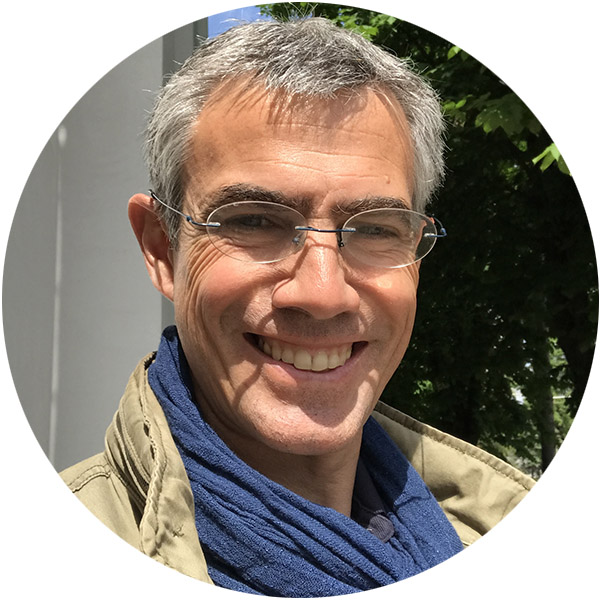
EMILIANO BOS
Journalist, RSI Radiotelevisione svizzera, Switzerland
Emiliano Bos writes on international issues and has produced reports from about forty countries, in particular from Africa and the Middle East. From 2015 to 2021 he was a correspondent for RSI Radiotelevisione svizzera, from the United States. For RSI Radiotelevisione svizzera, he has followed the conflict in Ukraine from the beginning, where he went twice, spending over a month on the ground and making reports for TV, radio and the web. In 2011 he was the author of the TV documentary “Mare deserto” about the shipwreck of dozens of migrants in the Mediterranean. A year earlier he published the book “In fuga dalla mia terra”, a journey along the immigration routes.

HE IGNAZIO CASSIS
President of the Swiss Confederation, Switzerland
Ignazio Cassis (FDP), elected by the United Federal Assembly on 20 September 2017, took up his post as head of the Federal Department of Foreign Affairs (FDFA) on 1 November 2017.
For two years prior to his election to the Federal Council, Mr Cassis was president of the parliamentary group of the FDP.The Liberals, of which he was a member since his election to the National Council in 2007. From 2015, he chaired the National Council’s Social Security and Health Committee. He was also vice-chair or chair of various parliamentary groups. His political career began in 2004 with his election to the legislative authority of the Ticino municipality of Collina d’Oro.
After graduating in medicine from the University of Zurich in 1987, Ignazio Cassis obtained a doctorate from the University of Lausanne in 1996 and a master’s degree in public health from the University of Geneva the same year.
From 1988 to 1996 he worked as a doctor, specialising 1998 in internal medicine and in prevention and public health. From 1997 to 2008 he was cantonal physician for the Canton of Ticino. From 2008 to 2012 has held the office of Vice-President of the Swiss Medical Association and since 2012 has held the office of various organisations in the health sector (Curafutura, CURAVIVA, EQUAM, RADIX, etc.).
His university teaching activities (in charge of courses) have taken him to various universities, such as Università della Svizzera italiana, Université de Lausanne, Universität Bern and Universität Zürich.
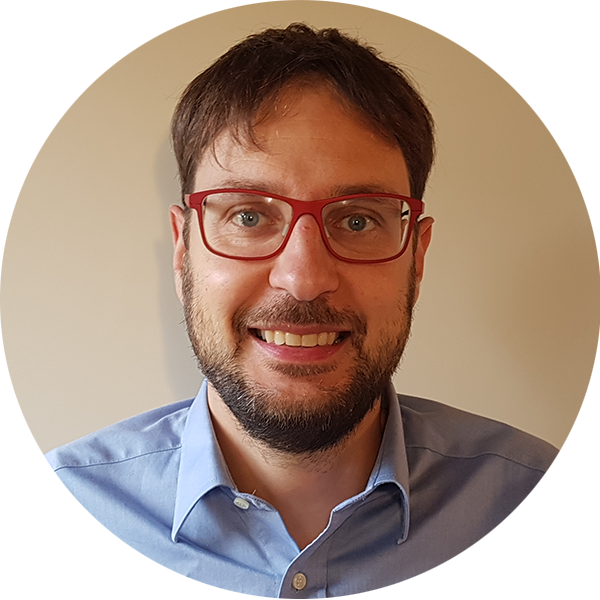
MARTINO DIEZ
Associate Professor, OASIS International Foundation, Catholic University of Sacro Cuore, Italy
Martino Diez is associate professor of Arabic Language and Literature at the Catholic University of Milan. He is the scientific director of the Oasis International Foundation (Milan). From January to July 2019, he was visiting member at the Institute for Advanced Study Princeton – School of Historical Studies.
He is a member of the Scientific Board of the IISMM (Institut d’études de l’Islam et des sociétés du monde musulman) at the École des Hautes Études en Sciences Sociales (EHESS) in Paris and the journals MIDEO, published by the Institut Dominicain d’Études Orientales in Cairo, and Islamochristiana, published by the Pontifical Institute for Arabic and Islamic Studies. He also sits in the Advisory Board of the Middle East Mediterranean Freethinking Platform (MEM) in Lugano, Switzerland, and is a member of the Istituto per l’Oriente “Carlo Alfonso Nallino”. He took part in the study commission on radicalisation and jihadi extremism established by the Italian Government (Presidency of the Council of Ministers) in 2016.
Since January 2020 he has been consultor of the Pontifical Council for Interreligious Dialogue
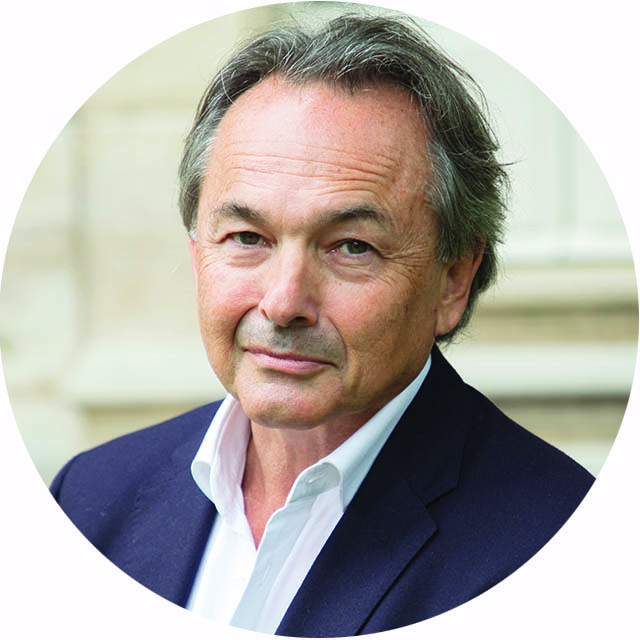
GILLES KEPEL
Professor, PLS Paris Sciences et Lettres-École normale supérieure, France; Adjunct Professor and Scientific director of the Middle East Mediterranean Freethinking Platform, Università della Svizzera italiana, Switzerland
Gilles Kepel is a French political scientist and Arabist, specialised in the contemporary Middle East and Muslims in the West. He is Adjunct Professor and scientific director of the Middle East Mediterranean Freethinking Platform. He is also Professor at the Université Paris Sciences et Lettres (PSL) and director of the Middle East and Mediterranean Chair at PSL, based at Ecole Normale Supérieure.
Originally trained as a classicist, he started to study Arabic after a journey to the Levant in 1974. He first graduated in Philosophy and English, then completed his Arabic language studies at the French Institute in Damascus (1977–78), and received his degree from Sciences Po in 1980. His research interests focus on the current geopolitical configurations and conflicts in the Middle East Mediterranean region, including the impact of Jihadi terror in the wake of the Massive attacks on French and European soil.
He investigated the developments of Islam as a social and political phenomenon in France, with an innovative approach in Islamic studies in the West. He researched on the 2005 French Banlieues riots in the Clichy-Montfermeil area, north of Paris, whence the events sparked. He also carried out comparative studies of political-religious movements in Islam, Judaism and Christianity. His two latest books are titled: Away from Chaos, Columbia University Press (2020) and Le prophète et la pandémie. Du Moyen-Orient au jihadisme d’atmosphère, Gallimard (2021).
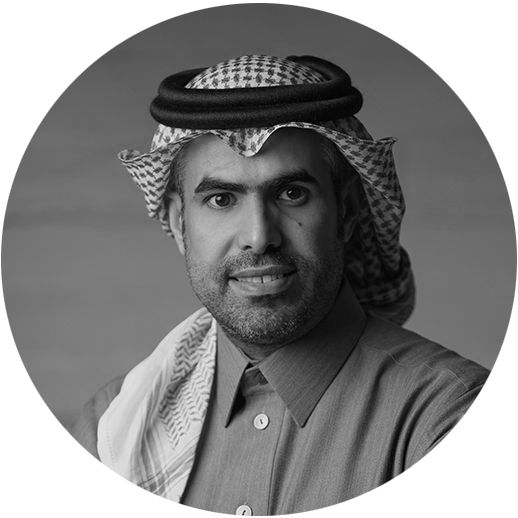
AHMED MATER
Contemporary Artist, Saudi Arabia
Physician turned artist, Ahmed Mater, is one of the most significant voices in Arab contemporary art today. Based in Riyadh, at the epicentre of Saudi Arabia’s current transformation, Mater’s work maps ‘unofficial histories’ in the Kingdom
against the backdrop of 40 years of conflict and reform across the Arab and Islamic world. Embracing the paradoxes of science and faith, Mater’s practice is poetically charged and politically engaged, combining art with cultural activism to consider the impact of historical events on the social and psychological health of the individual, the community, and society at large.
In 2023, Mater will unveil Prognosis, a multi-format art project and retrospective of the artist’s career that includes a major book and touring exhibition. Drawing on four decades of the artist’s personal and historical archives, Mater presents an urgent portrait of his society in dramatic transition – an artistic “prognosis” of the contemporary human condition. Using immersive collage, photography, and film, Prognosis imagines possible futures for his native Saudi Arabia given the unprecedented religious, economic, and political changes that have taken place over the course of the artist’s life.
Mater lives and works in Riyadh, Saudi Arabia. He is represented by Athr Gallery, Jeddah and Galleria Continua, San Gimignano.

DIANA SEGANTINI
Independent Consultant/Freelance, Art Basel, Switzerland
Diana Segantini is a Swiss/Norwegian citizen who specialised in Arab-Islamic Studies at L’Orientale University in Naples and holds a Masters in International Relations from IUHEI Geneva. Segantini started her professional career in the art and documentary film scene, as well as gaining extensive experience working in different countries serving the UN, various NGOs and more extensively in the Middle East as a delegate for the International Red Cross ICRC for 4 years. Fluent in Arabic and 9 other languages, she has become an expert on the Arab region and with regard to intercultural issues.
In 2008, she founded Segantini Unlimited, an agency specialised in cultural mediation and international cultural productions such as art exhibitions, music events, debates and documentary films, mandated by the Global Ethic Foundation.
Segantini has also led women’s empowerment programs in Saudi Arabia and the rest of the GCC. For 6 years, she was head of Arts & Culture for Swiss TV and radio RSI and a Member of the RSI Board, producing music concerts and over 100 feature and documentary films, acclaimed at various international Festivals.
Since 2019, she has contributed to Saudi Arabia’s Vision 2030 through several projects; in 2019 she was appointed Chief Heritage & Culture officer at Diriyah Gate Development Authority in Saudi Arabia, responsible for this UNESCO Heritage Site, building up several cultural institutions such as museums, academies and an Art District. She subsequently served as senior director for Arts & Culture at AMAALA. Currently, she is Partner for Culture, Heritage & Communication at AEON Strategy, a Saudi firm specialised in true sustainability. Moreover, she is an independent advisor for arts, culture, media & philanthropy in different projects in GCC and Switzerland.
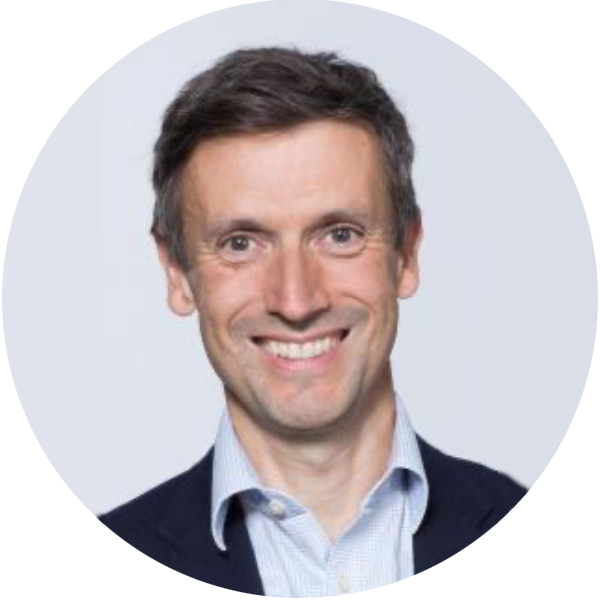
LAURENT VIVIER
Senior Vice President Middle East and North Africa, Exploration and Production,Total Energies, France
Laurent Vivier is Senior Vice President Middle East and North Africa in the Exploration & Production Division of the TotalEnergies Company and is a member of the CDEP since January 1, 2021.
Laurent Vivier began his career within TotalEnergies in 1996 in the Company’s Trading activity. Responsible for trading activities in LPG (liquefied petroleum gas) and then in natural gas for Europe and North America, he held positions in Paris, Geneva, London and Houston.
He returned to France in 2011, he was appointed Vice President Strategic Planning for Gas & Power. Four years later, he was appointed Senior Vice President Gas of TotalEnergies. In this capacity, he accompanied TotalEnergies’s growth in LNG (liquefied natural gas) and the creation of the Gas, Renewables & Power (GRP) division.
Since January 1, 2021, Laurent Vivier has been Senior Vice President Middle East and North Africa in the Exploration & Production branch. In this region, where the TotalEnergies Company came into existence nearly a century ago. The challenge for the branch and its SVP is twofold: to ensure the historical continuity of its Exploration & Production activities and to support TotalEnergies’s climate ambition and the energy transition of the countries in the area.
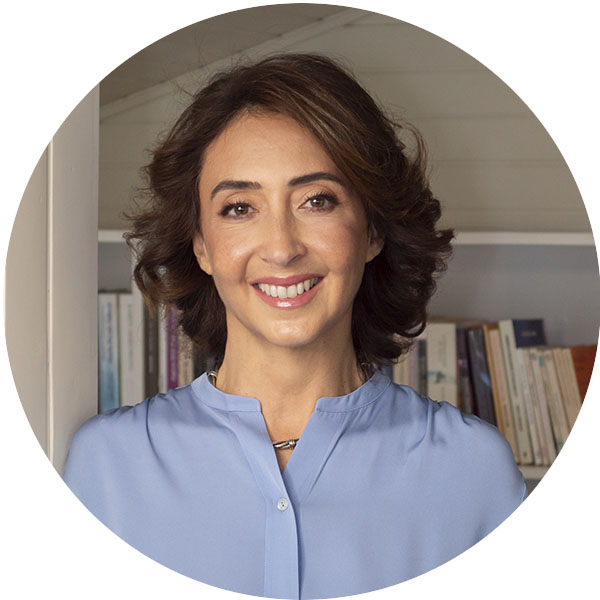
HRH PRINCESS RYM ALI
President, Anna Lindh Foundation, Jordan
Her Royal Highness Princess Rym Ali founded in 2007 the Jordan Media Institute (JMI), a non-profit institution whose aim is to establish an Arab center of excellence for journalism education with a Master’s program at its core and training-modules in parallel (www.jmi.edu.jo). She has also been a member of the Board of Commissioners of the Royal Film Commission – Jordan since July 2005 (www.film.jo/en). And she is the president of the Amman International Film Festival “AIFF” Awal Film since 2017.
Prior to marrying HRH Prince Ali Bin Al Hussein, Princess Rym worked extensively for international broadcasters including CNN, where she began as a producer in 1998 and later worked as a Baghdad correspondent from 2001 until 2004. She had developed her portfolio working for the BBC, Dubai TV, Bloomberg TV, Radio Monte-Carlo Moyen- Orient, and United Press International-UPI.
A graduate of Columbia University’s School of Journalism, Princess Rym Ali also holds a “Diplôme d’Etudes Avancé” ” in Political Science from the Institut d’Etudes Politiques in Paris and a MA in English Literature from the Sorbonne.
Princess Rym Ali received a prestigious Alumni Award from the Columbia University School of Journalism in April 2011. In July 2011, she was also awarded the “Best International Journalist” prize at the 32nd Ischia International Journalism Awards Ceremony, one of the most renowned journalistic awards in Italy.
In April 2018 The Portuguese President, Marcelo Rebelo de Souza, presented Princess Rym Ali with a decoration, the order of Prince Henry the Navigator, for her efforts in the field of culture and intercultural exchange.
In September 2021, The Anna Lindh Foundation, which works in intercultural dialogue in the Euro-Mediterranean region, announced the decision to appoint the Jordan Media Institute’s founder, Princess Rym Ali, as president of the foundation, succeeding French politician Elizabeth Guigou.
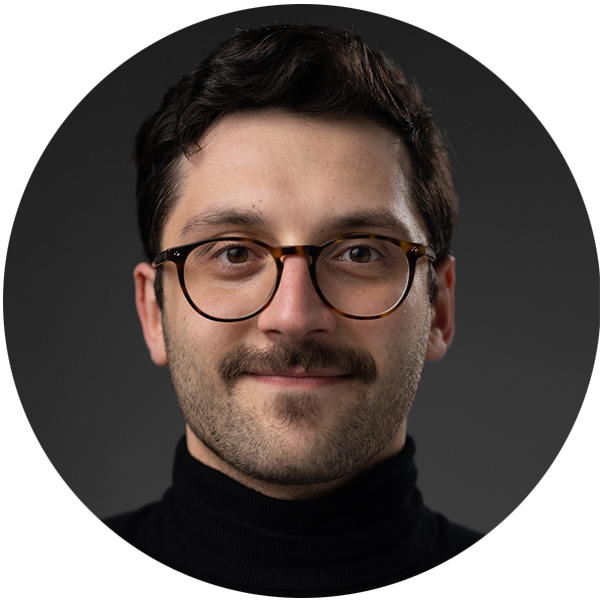
ZAKARIA AL SHMALY
Doctoral Fellow at United Nations University UNU-MERIT, Dahrendorf Fellow at Oxford University – St. Antony’s College, Syria
Zakaria Al Shmaly is a Syrian academic who researches the intersection between governance and technology, with a focus on European asylum policy. He worked in Europe and the Middle East with humanitarian and international organisations such as the International NGO Safety Organisation (INSO), Norwegian Refugee Council (NRC), and the European Parliament. He holds a B.A. in Liberal Arts and Sciences from the University College Freiburg, an M.A. from the European University Institute, and is currently a Dahrendorf Fellow at Oxford University – St. Antony’s College and a Doctoral Fellow at the United Nations University – Maastricht Economic and Social Research Institute on Innovation and Technology (UNU-MERIT). Zak is also a musician and a political theatre

HE LEILA BENALI
Minister of Energy Transition and Sustainable Development, Morocco

LORENZO CANTONI
Deputy Rector, Università della Svizzera italiana, Switzerland
Lorenzo Cantoni graduated in Philosophy and holds a PhD in Education and Linguistics. He is full professor at USI – Università della Svizzera italiana (Lugano, Switzerland), Faculty of Communication, Culture and Society, where he is director of the Institute of Digital Technologies for Communication.
His research interests are where communication, education and new media overlap, ranging from computer mediated communication to usability, from eLearning to eTourism and digital Fashion, from ICT4D to eGovernment.
He is chair-holder of the UNESCO chair in ICT to develop and promote sustainable tourism in World Heritage Sites, established at USI in 2013, and board member of WHES – World Heritage Experience Switzerland.
He is USI’s Deputy Rector and Pro-rector for Education and Students’ experience. He is director of the Master in Digital Fashion Communication, done in collaboration with the Université Paris 1 Panthéon-Sorbonne, and director of the Master in International Tourism. Cantoni has been Dean of the Faculty (2010-2014) and President of IFITT – International Federation for IT in Travel and Tourism (2014-January 2018).
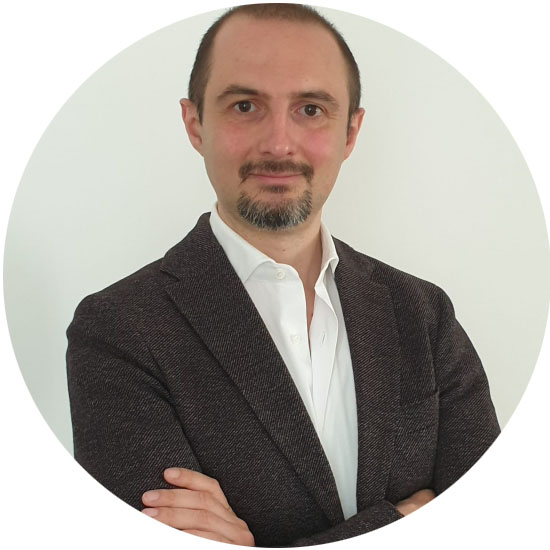
EUGENIO DACREMA
Early Warning Economic Risk Analyst, World Food Programme, Italy
Eugenio Dacrema is head of the economic analysis section of the Analysis and Early Warning Team at WFP. In his work he focuses on national and international macroeconomic dynamics affecting food prices and food security. Previously he was co-head of the Mediterranean Department of the Milan-based Italian Institute for International Political Studies (ISPI). He holds a PhD degree in International Studies from the University of Trento, Italy.
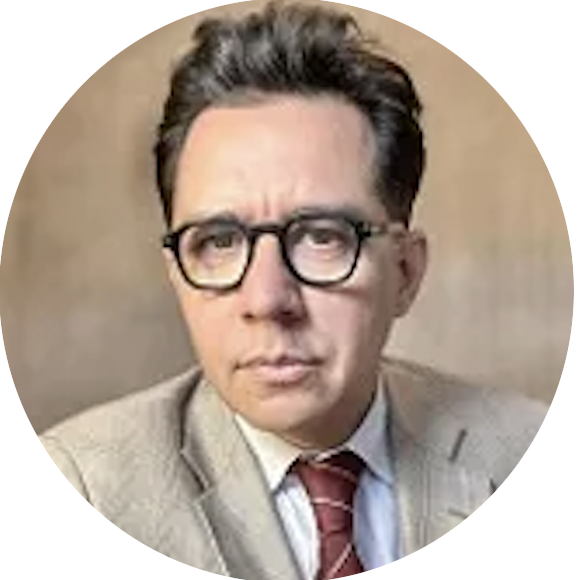
JALEL HARCHAOUI
Associate Fellow, The Royal United Services Institute for Defence and Security Studies, Libya and France
Jalel Harchaoui is a political scientist specialising in North Africa, with a specific focus on Libya. He worked on the same topics previously at The Global Initiative Against Transnational Organised Crime, a Geneva-based NGO, as well as at the Clingendael Institute, based in The Hague. His research has concentrated on Libya’s security landscape and political economy.
A frequent commentator on Libya and Algeria in the international press, he has published in Foreign Affairs, Lawfare, Politique Étrangère, Foreign Policy, and Small Arms Survey. An engineer by trade, Jalel holds a master’s degree in Geopolitics from Paris 8 University.
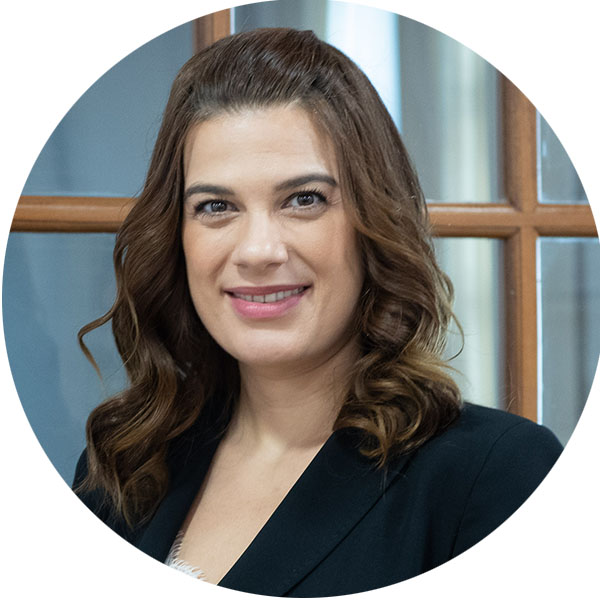
HE NATASA PILIDES
Minister of Energy, Commerce and Industry, Cyprus
Natasa Pilides was appointed Minister of Energy, Commerce and Industry on 10 July 2020.
Previously, on 1 March 2018 she had been appointed as the first Shipping Deputy Minister of the Republic of Cyprus, heading the strategic development and promotion of Cyprus as a world class, integrated, maritime cluster.
From April 2016 to March 2018, Ms Pilides was Director General of the Cyprus Investment Promotion Agency (Invest Cyprus), responsible for the design and implementation of Invest Cyprus’ strategy in investment promotion, investor support and facilitation of reform.
She has more than fifteen years of private sector experience, notably as Director and Regional Chief Operating Officer at Baker Tilly South East Europe, heading the departments of Finance, Marketing, HR, Administration, Operations and IT, for Cyprus, Greece, Romania, Bulgaria and Moldova.
She also worked, for 9 years, at PwC in Cyprus, Milan and London, in audit and tax consulting of multinational companies active in the fields of banking and finance, shipping, insurance, energy, construction and FMCG.
Ms Pilides has wide experience in delivering professional training and courses for ICAEW, ACCA and CIMA exams, in the areas of audit, tax, corporate law, ethics, financial accounting and reporting, at BPP London, a leading professional studies organisation.
She graduated from Oxford University with a first-class honours degree, with distinction, in Modern Languages and Literature (French and Italian). She is a Fellow of the Institute of Chartered Accountants of England and Wales (ICAEW) and a member of the Institute of Certified Public Accountants of Cyprus (ICPAC).
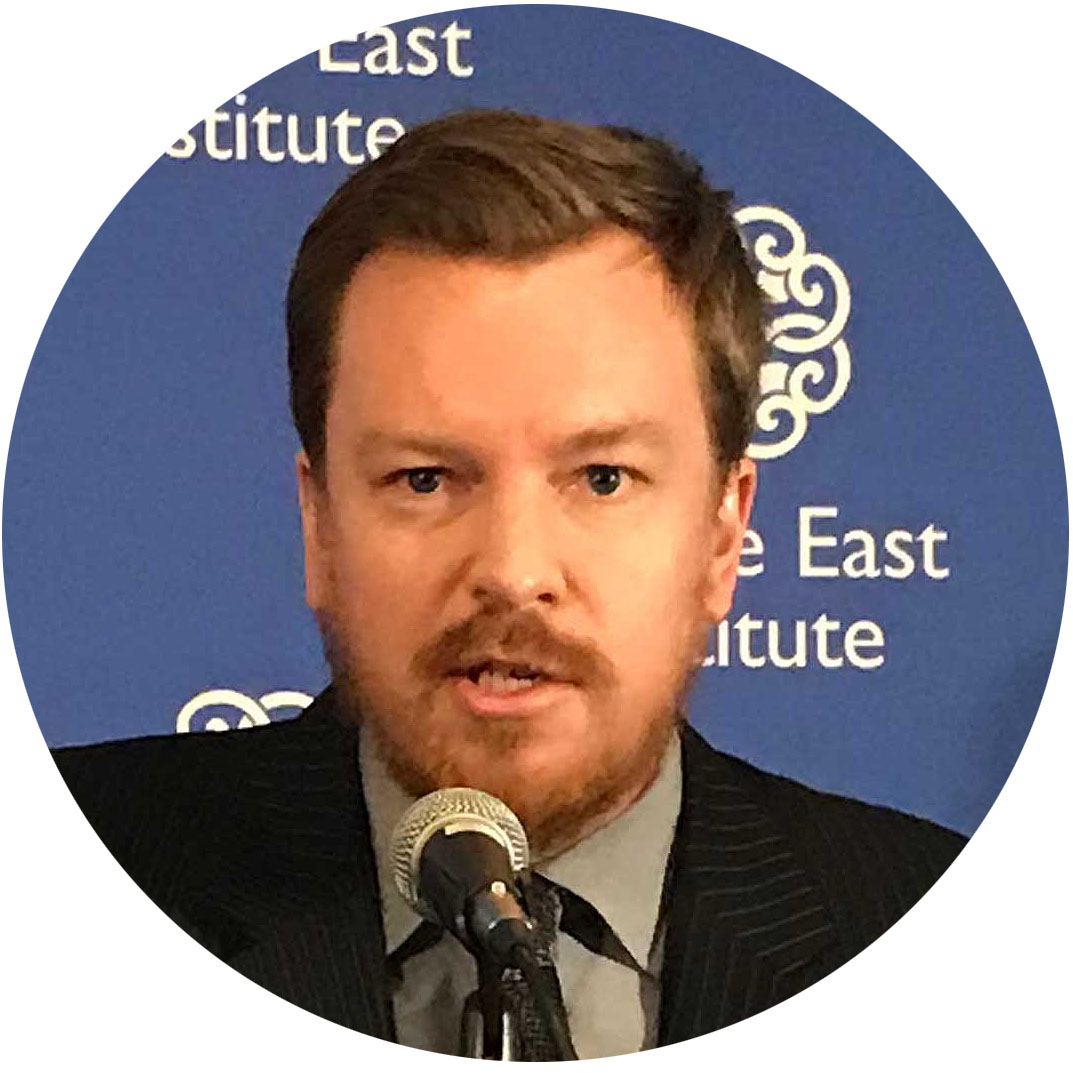
STEPHEN STAPLETON
Artist, Social Entrepreneur and Founding Director, Edge of Arabia, United Kingdom
Stephen Stapleton is a British-Norwegian artist-educator and social entrepreneur known for leading organisations and developing platforms for cultural production, education and diplomacy between the Middle East, Europe and the United States. Following an artist road trip across the Middle East in 2002-2003, Stephen founded Edge of Arabia and the UK charity, the Crossway Foundation, as platforms for creative collaboration between the Middle East (with a focus on Saudi Arabia) and the West. In 2015, Stephen launched Culturunners at MIT to develop artists-led initiatives which utilise culture to transform communities, societies and systems and inspire greater empathy across ideological and geographical borders. In 2017, he was invited to lead international programmes at the newly established Misk Art Institute in Riyadh.
With 20 years’ experience working in the international cultural and educational sector in Saudi Arabia, Stapleton has produced over 50 international exhibitions including at the Venice Biennale, Brooklyn Museum, Los Angeles County Museum of Art, Bates College Museum of Art, Utah Museum of Contemporary Art, Smithsonian Institute, The Kennedy Center, Royal Geographical Society, Arab American National Museum, United Nations and the British Museum; published six internationally distributed books with Booth-Clibborn Editions; including “Offscreen: Four Young Artists in the Middle East” (2004) and “Edge of Arabia: Contemporary Art from the Kingdom of Saudi Arabia” (2010); and produced several artist-focused documentary films with The Guardian, Creative Time, and World VR forum.
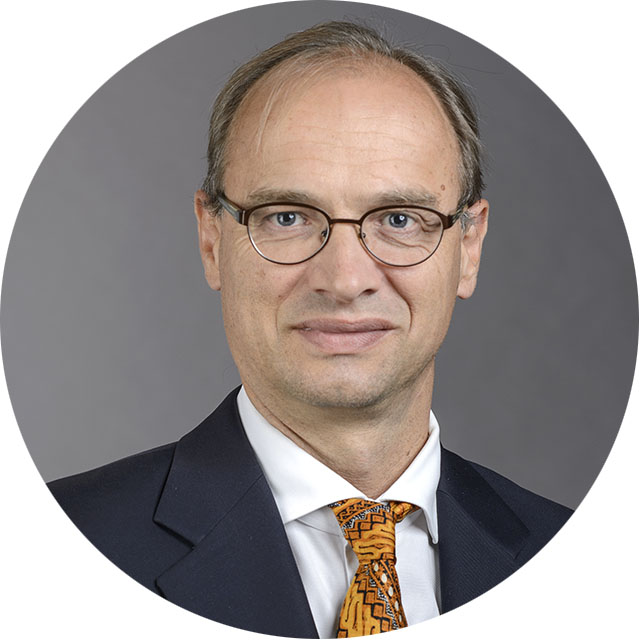
HE PIO WENNUBST
Permanent Representative, Permanent Mission of Switzerland to the United Nations organisations in Rome, Switzerland
Ambassador Pio Wennubst, an agro-economist specialised in systemic approaches by formation, is an experienced development diplomat with extensive fieldwork. After a period as managing director of a Swiss chemical company, he joined the public sector. Between 1992 and 2008, Wennubst moved first to Nepal to work for the UN and later to different countries, such as Bolivia, Madagascar and Tanzania, to work for the Swiss Agency for Development and Cooperation (SDC).
From 2008 to 2011, he was the deputy permanent representative of the Swiss Mission to the Rome-based UN agencies and from 2010, he was also in charge of reforming the SDC’s Global Programme Food Security. He later joined the Swiss permanent mission to the UN in New York as head of the economic and social development team where he facilitated several resolutions, including the QCPR 2012 in which the United Nations Development System reform is rooted. Subsequently, Wennubst managed for almost six years the Global Cooperation Department as assistant director general of SDC and was in charge of the Swiss support to multilateral funds and programs such as UNDP, Green Climate Fund, UNWOMEN, UNICEF, UNCDF and others.
Currently, Ambassador Wennubst is representing Switzerland at multilateral agencies based in Rome that deal with food security and agricultural development, namely FAO, IFAD, WFP and CFS. In the context of the United Nations Food Systems Summit that took place in New York in September 2021, Wennubst launched the project “Bites of Transfoodmation”, which engages youth to transform food systems through a unifying common vision.
Online Streaming
Lo streaming del Forum potrà essere seguito online qui, il 27 agosto, alle 09:00 (CEST).
